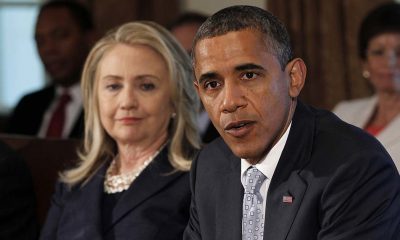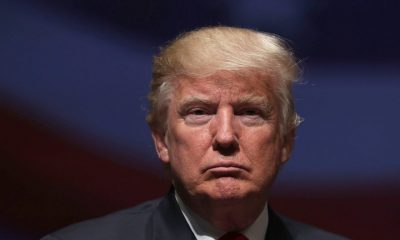World
India, US to enhance cyber security cooperation

Washington: India and the US have committed to robust cooperation on cyber issues to increase global cyber security and promote the digital economy.
They have identified a variety of opportunities for increased collaboration on cyber security capacity-building, cyber security research and development, combating cybercrime, international security, and Internet governance.
The two countries also intend to pursue an array of follow-on activities to bolster their cyber security partnership and achieve concrete outcomes, according to a joint statement issued after a two-day 2015 India-United States Cyber Dialogue here.
The Aug 11-12 whole-of-government Cyber Dialogue, fourth in the series, was led by the US Cybersecurity Coordinator and Special Assistant to the President Michael Daniel and by India’s Deputy National Security Advisor Arvind Gupta.
The delegations discussed a range of cyber issues including cyber threats, enhanced cyber security information sharing, cyber incident management, cyber security cooperation in the context of ‘Make in India’, efforts to combat cybercrime, Internet governance issues, and norms of state behaviour in cyberspace.
In addition to the formal dialogue, the delegations met with representatives from the private sector to discuss issues related to cybersecurity and the digital economy, according to the joint statement.
The Indian delegation also met with Deputy Secretary of State Antony Blinken and Assistant to the President for Homeland Security and Counterterrorism Lisa Monaco.
The next round of the Cyber Dialogue will be held in Delhi in 2016.
US-India Business Council has applauded the resumption of cybersecurity dialogue after a two year hiatus saying the talks focused on enhancing cooperation between governments and building partnerships with the private sector to protect critical infrastructure.
The leading business advocacy group composed of more than 300 top-tier US and Indian companies said senior business leaders shared their views on cyber challenges with senior Indian and US government officials.
“As the digital economy continues to develop, the interdependency between governments and businesses will grow,” said USIBC president Mukesh Aghi.
“It is in the interest of all parties to continue to engage in dialogues that spur policy developments and economic growth.”
Industry leaders from the US submitted policy recommendations to the US and Indian government emphasizing the need to protect cross border data flow, facilitate remote access, provide for strong encryption standards, and reduce cybersecurity threats through targeted public-private partnerships.
World
Lockdowns in China Force Urban Communities to Defy Censorship and Vent Frustration Online

Shanghai’s rich middle class is leading a wave of online dissent over the strict and prolonged lockdowns imposed in various parts of the country. Chinese internet censorship is struggling as patience is wearing thin in many urban centers, coming up with creative forms of online protests.
Social Media Posts Revealing Lockdown Tension in Shanghai
Drawn-out lockdowns are nothing new in China as authorities insist with the nation’s zero-Covid policy since the start of the pandemic. Currently over This time around, however, metropolitan areas like Shanghai are increasingly difficult to keep quiet, given that its more than 25 million residents have seen weeks of total isolation along with food shortages and many other service interruptions.
Dozens of towns and reportedly over 300 million Chinese citizens have been affected by lockdowns of different severity. As expected, urban netizens have been most outspoken over their difficulties by finding creative ways to get around state censorship and bans placed on topics, news comments and spontaneous campaigns.
Shanghai residents have been using mobile proxies and hijacking seemingly unrelated hashtags to talk about healthcare issues, delivery failures and the overall severity of their situation. The “positive energy” that the Chinese government wants to transmit during the recent prolonged series of lockdowns does not come naturally to those counting food supplies and online censors are working hard to filter words, trending topics and undesired social media sharing.
WeChat groups and message threads are under constant monitoring. Posts questioning the zero-Covid approach have been quickly deleted, including by leading Chinese health experts like Dr. Zhong Nanshan. Video footage is soon censored and protests and investigations are quickly made to disappear.
Where this has not worked, officials have exposed banners with warnings and outright threats like “watch your own mouth or face punishment”, while drones have been patrolling the city skies. Yet, if anything, this has led to further tensions and unspoken confrontation with Shanghai’s educated and affluent middle class.
Creative Online Solutions Harnessing Civic Energy
Announcements by Chinese social media that they would be publishing the IP addresses of users who “spread rumors” have not helped either. Tech industry research has shown that much of Asia’s tech-savvy population has a habit of using mobile proxies and other privacy tools, quickly finding workarounds to browse the internet freely and talk to the world about the hottest topics.
The sheer volume of forbidden posts is already a challenge for the very censorship system, experts explain. Unable to track all trending hashtags, state workers overlook topics that speak about the US, Ukraine or other popular news. Linking human rights elsewhere to their situation, Chinese online dissidents establish their informal channels and “hijack” the conversation to share personal or publicly relevant information about the Covid suppression in their town.
Sarcastic and satirical posts still dominate. Others hope to evade the censors by replacing words from famous poems or the national anthem. One thing is certain – social media, when harnessed with the right creativity, has proven its ability to mount pressure on the government in even some of the most strictly controlled tech environments like China.























